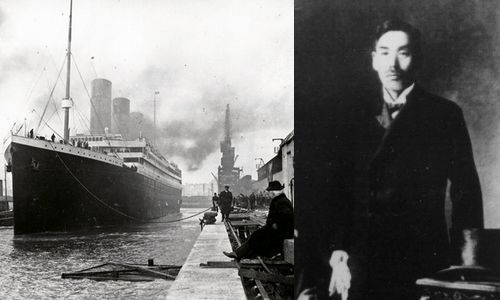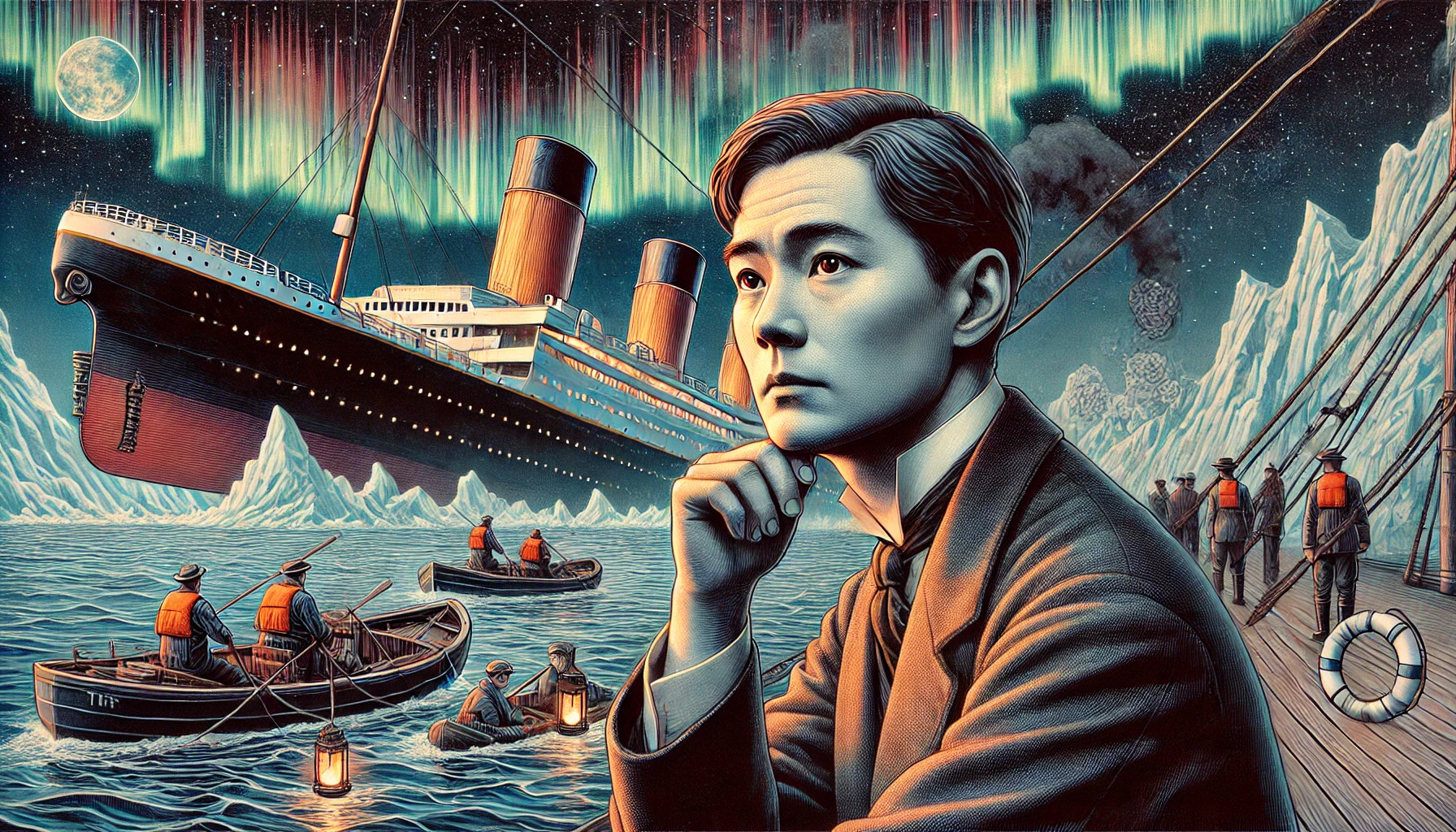In 1912, the tragedy of the Titanic deeply marked the history of humanity. More than 1,500 people lost their lives on that fateful voyage, while only a few hundred survived to tell their stories. Among the survivors, Masabumi Hosono, the only Japanese on board, faced not only the trauma of the shipwreck but also the cruel judgment of his society.
Masabumi's story is not just about survival, but also about how cultural and social values can shape personal narratives. He survived the disaster with the simple desire to return to his family, but ended up being called a coward in his homeland. Why did his decision to live generate so much hatred? Let's explore his journey, the criticisms he faced, and the impact of this on his life and the history of Japan.
Table of Content
Who was Masabumi Hosono?
Masabumi Hosono was born in 1870 and, before the Titanic, he led a common life as a civil servant in Japan. Working for the Ministry of Transport, he was sent to Russia and England to study railway systems. Upon completing his mission, he decided to return to Japan by boarding the most famous ship of the time: the RMS Titanic.
As a second-class passenger, Masabumi was on board the ship when it collided with the iceberg on April 14, 1912. Amid the chaos that engulfed the deck, he saw an opportunity to get into lifeboat number 13, which still had space. Motivated by the desire to see his wife and children again, he made the decision that would save his life, but also forever mark his reputation.

The Weight of Survival
Critics in Japan
Although he survived the shipwreck, the reception of his story in Japan was anything but welcoming. At that time, samurai virtues — such as courage, sacrifice, and honor — were still highly admired. Many believed that Masabumi should have sacrificed himself to save other lives, such as those of women and children.
The inevitable comparison was made with figures like Benjamin Guggenheim, an American businessman who allegedly accepted his death with dignity, giving up his place for others in the lifeboats. For Japanese critics, Hosono's survival was seen as a betrayal of the ethics of sacrifice.
Consequences in Your Life
The repercussions were severe. Hosono was called a coward by the media, lost his job in public service, and faced years of social ostracism. His family also suffered, being the target of public shame for decades. This psychological pressure had a lasting impact, but he managed to rebuild part of his life by finding work in the Japanese railway network.
Only after his death in 1939 and with the release of the movie Titanic in 1997 did his story begin to be re-evaluated. The Japanese government, at the time, issued an official apology to his family, acknowledging the unjust treatment given to Hosono.

Why Was He So Criticized?
The Historical Context
At the beginning of the 20th century, Japan was strongly influenced by nationalist values. Japanese culture idolized sacrifice and selflessness, concepts inherited from the honor code of the samurai, the bushido. Furthermore, the recent memory of acts such as seppuku — the ritual suicide of samurai — and the kamikazes in World War II reinforced this expectation of placing honor above survival.
Hosono, however, acted instinctively as any human being would. He did not violate any universal ethical rules, but his actions were judged by the cultural standards of his time.
A Matter of Perspective
If we stop to reflect, how would we react in a life or death situation like that of the Titanic? Hosono did what many would do: he seized the opportunity to live. The criticisms against him reveal more about the values of Japanese society at that time than about his personal morality.

The Legacy of Masabumi Hosono
Today, the story of Masabumi Hosono is a powerful reminder of how cultural contexts can influence judgments and narratives. His case serves as a reflection on the complexity of morality and the weight of social expectations.
Hosono was not only a victim of the shipwreck but also of his time. His survival, instead of being celebrated as a triumph of life, was used to illustrate values that punished those who simply chose to live. Fortunately, decades later, his story began to be reinterpreted, bringing relief and justice to the memory of his family.
A Silent Survivor
Despite the criticisms and difficulties, Masabumi Hosono kept a detailed diary of his experience on the Titanic. In it, he recorded his thoughts and feelings, leaving a valuable testimony about that tragic event. His diary is now a historical document that helps to understand not only the sinking but also the challenges he faced after returning to Japan.
If you were in Hosono's place, would you have made the same decision? Or would you sacrifice yourself to save another? Masabumi's story reminds us that in extreme situations, there are no easy answers, only human choices.
